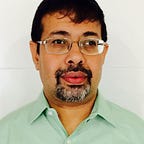The Future of the Electricity Grid is being built in Bangladesh
A company founded by a German academic- entrepreneur in this young South Asian nation could change the world.
Imagine a world where solar rooftops and electric vehicles abound. The abundance of solar rooftops will bring down the cost of generating electricity. The charging needs of electric vehicles would increase the demand for electricity. In such a world, when you go on your summer holiday you can still earn money by selling the electricity produced from your solar rooftop to nearby electric car charging stations. In the future grid, individuals will not only be consuming electricity but will be selling electricity to each other.
Such a world already exists. Bangladesh has several million solar home systems. Not all households can consume the electricity produced every single day. They are signing up to sell the extra power because the money means a lot to them. Among the customers who are buying this power are electric rickshaws. Electric rickshaws help reduce drudgery in a driver’s life. The electricity grid is not reliable to charge these emerging economy EVs. The additional income from these small energy sales is important to the lives of rural Bangladeshis.
ME Solshare is making all this possible and it is for this reason that they, along with Grameen Shakti, have won the UN DESA US $1 million Powering the Future We Want Grant.
In this podcast I talk to Dr. Sebastian Groh, founder of ME Solshare . He holds a PhD from Aalborg University (Denmark) and the Technische Universität Berlin. He explains why this business could be built only in Bangladesh. And how they have been able to build this with an investment of less than a USD 1 million!
